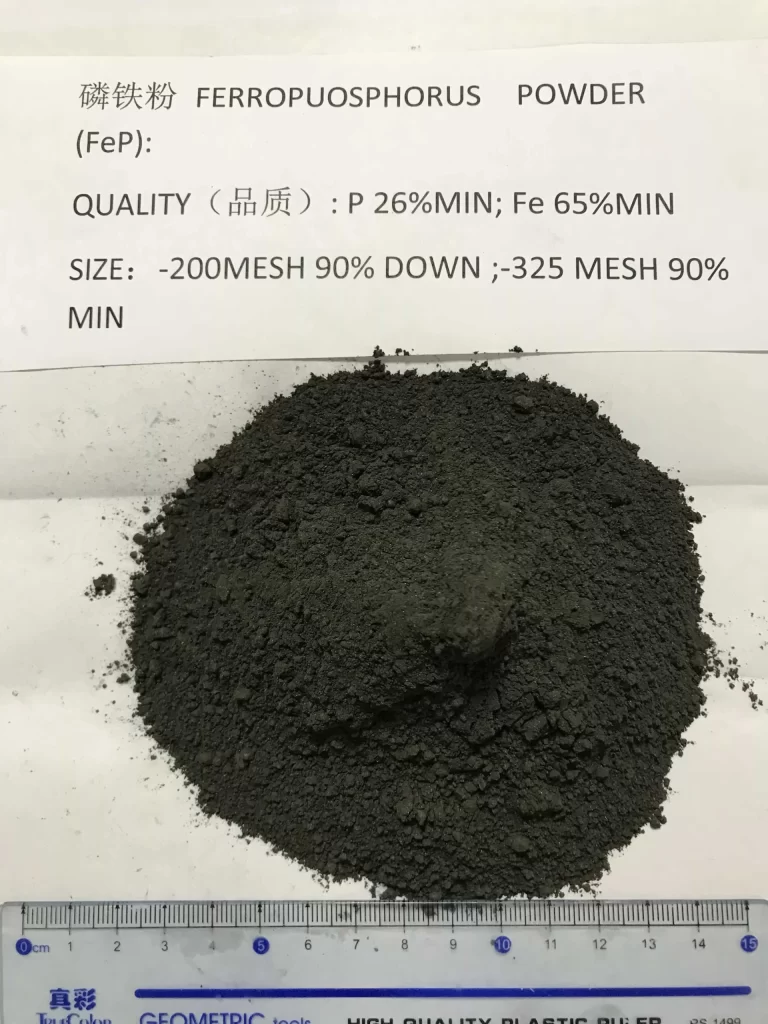As energy storage technology continues to evolve, improving battery performance, reducing costs, and extending their lifespan have become key concerns for researchers and industry experts. Among various new materials, pyrite powder, a promising and low-cost resource, is increasingly being used in battery manufacturing due to its affordability and environmental benefits. This article delves into the application of pyrite powder in batteries, exploring its unique advantages in enhancing battery performance and looking ahead to future research directions.

Challenges in Battery Technology and the Potential of Pyrite Powder
As global demand for sustainable energy increases, traditional battery materials face challenges such as high costs, limited resources, and environmental impact. Particularly in lithium-ion batteries, the high cost of materials and the limited availability of natural resources make reducing production costs a major hurdle. Thus, finding alternative materials has become a key focus of research.
Pyrite (FeS₂) is an abundant and low-cost mineral, and recent studies have shown that pyrite powder holds significant potential in battery applications. It reduces the cost of batteries and improves their performance.
Applications of Pyrite Powder in Batteries
Ultrafine iron pyrite powder is primarily used in lithium-ion batteries and nickel-metal hydride (NiMH) batteries. As a material for the positive or negative electrodes, it enhances the electrochemical performance of the battery. Here are the two main application directions for pyrite powder:
- As a Positive Electrode Material: Pyrite powder has a relatively high theoretical capacity, making it a promising material for the positive electrode in lithium-ion batteries. By improving the battery's capacity, it increases the battery's overall storage space, thus extending battery life while reducing reliance on expensive metal materials.
- As a Negative Electrode Material: Another important application of pyrite powder is as a negative electrode material, especially in NiMH batteries. Studies show that pyrite powder can enhance the battery's cycle stability, reducing performance degradation over time and extending battery lifespan.
Advantages of Pyrite Powder
Cost-Effectiveness
One of the biggest advantages of iron pyrite powder is its abundance and low cost. Pyrite powder is much cheaper than other common battery materials like cobalt and nickel, significantly lowering battery production costs.
Environmental Friendliness
As a natural mineral, pyrite powder is also environmentally friendly. The pyrite mining process has a smaller environmental footprint than traditional battery materials, making it a more sustainable option and reducing the carbon footprint of battery production.
Improved Battery Performance
Using pyrite powder in batteries can improve overall performance, especially in capacity and cycle life. Experimental results show that pyrite powder can significantly enhance the charging and discharging efficiency, minimizing energy loss.
Challenges and Future Prospects
Despite the significant potential of pyrite powder in batteries, there are still some challenges. For instance, the electrochemical performance of pyrite powder can sometimes be unstable, particularly in long-term use, leading to capacity degradation. Additionally, the complex crystal structure of pyrite requires further optimization to improve stability in batteries.
However, with ongoing scientific research, many researchers are working to overcome these issues. By modifying the pyrite powder through processes such as nanomaterial treatment and doping, further improvements in its battery performance are expected. The future of pyrite powder in energy storage technologies looks very promising, and it is expected to become a key material for next-generation batteries.
Conclusion
Pyrite powder, as a low-cost, environmentally friendly, and high-performance battery material, has shown great potential in enhancing battery performance. While there are still challenges in its application, the ongoing research is expected to unlock its full potential. As technology continues to mature, pyrite powder will not only reduce battery costs but also improve battery performance, contributing to the development of sustainable energy solutions.
FAQ (Frequently Asked Questions)
Q1: How does pyrite powder improve battery performance?
A1: Pyrite powder improves battery performance by increasing capacity, extending cycle life, and enhancing charging/discharging efficiency, which collectively enhance overall battery performance.
Q2: How much cost advantage does pyrite powder offer?
A2: Pyrite powder is significantly cheaper compared to other precious metal materials, thus considerably lowering battery production costs.
Q3: Is pyrite powder suitable for all types of batteries?
A3: Currently, pyrite powder is mainly used in lithium-ion and nickel-metal hydride batteries, and further research is needed for other types of batteries.
